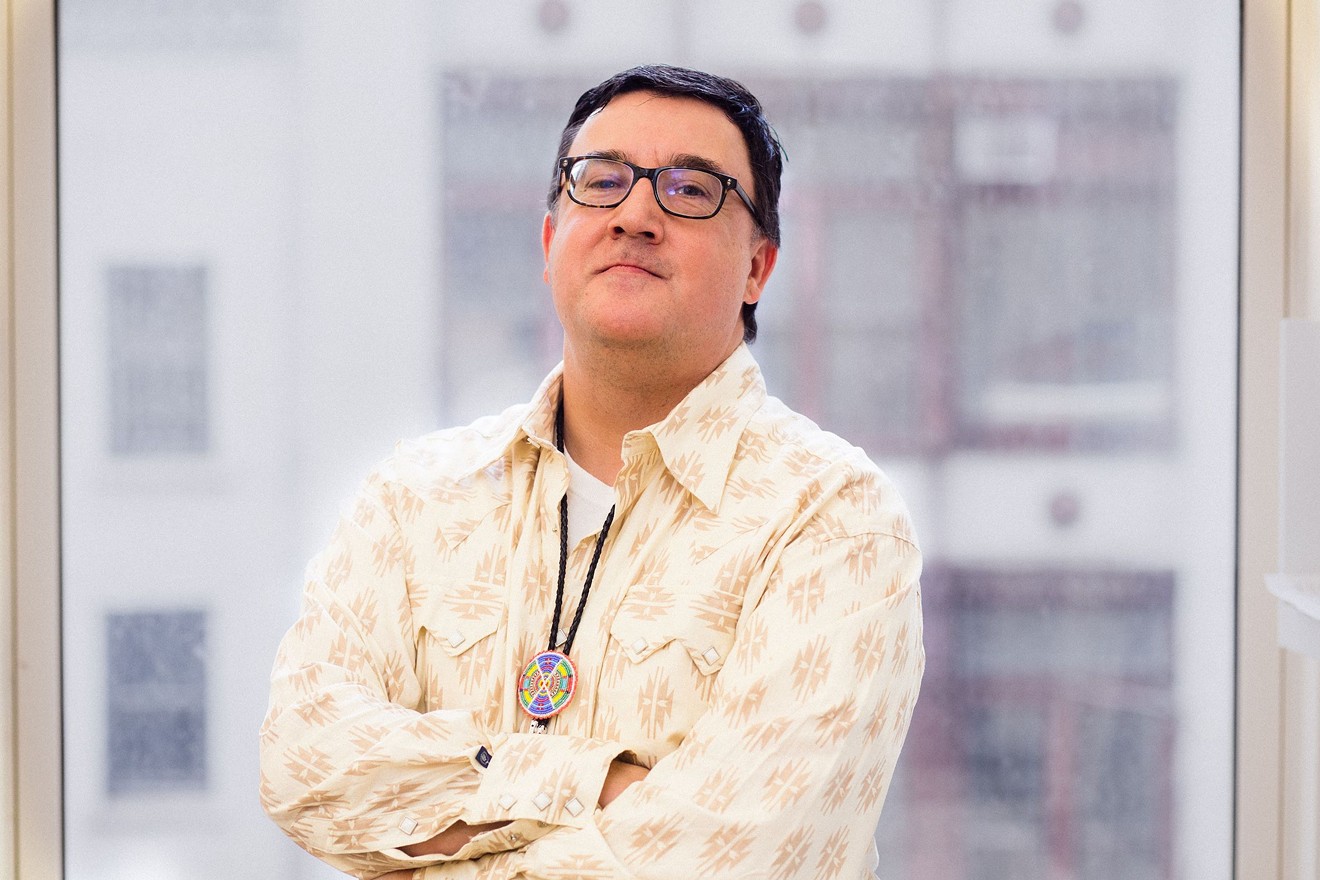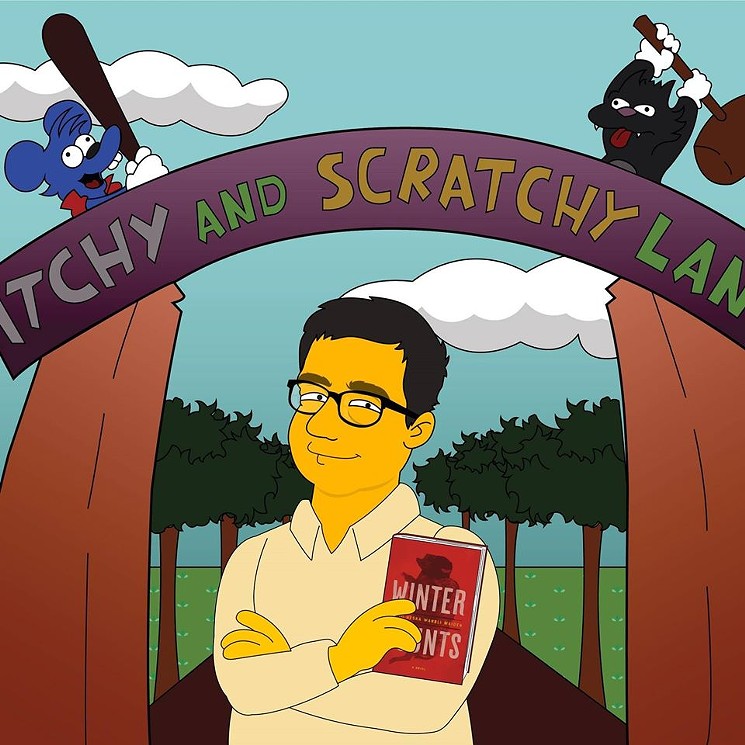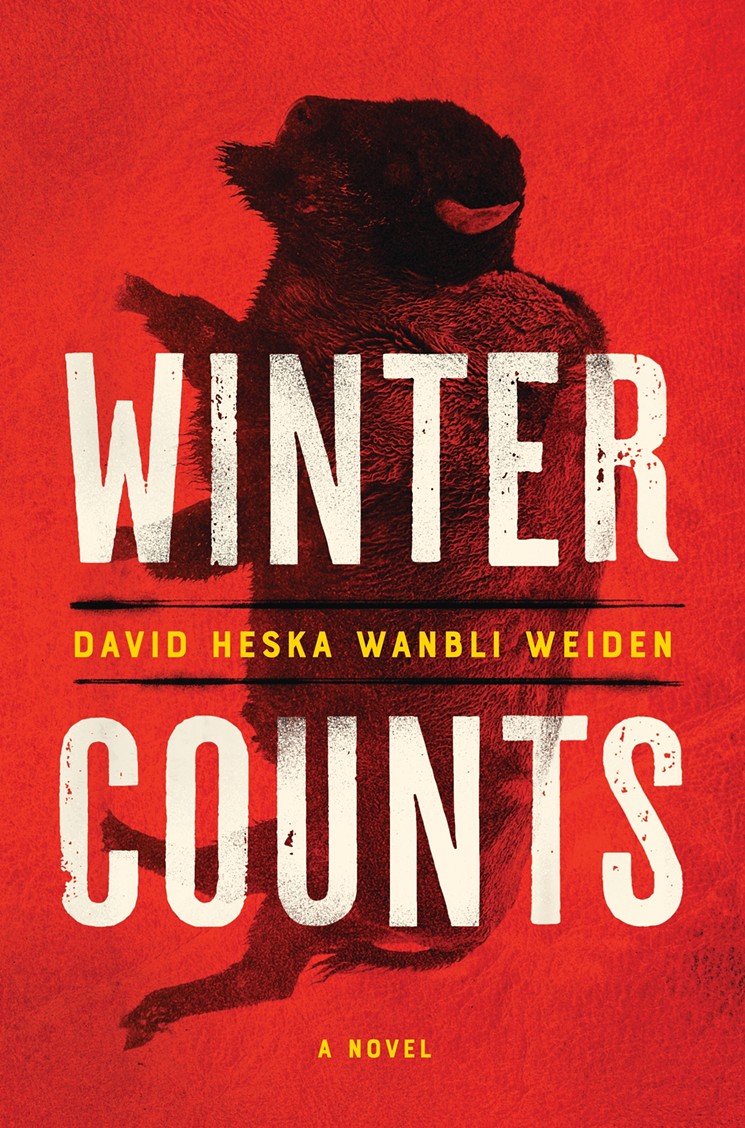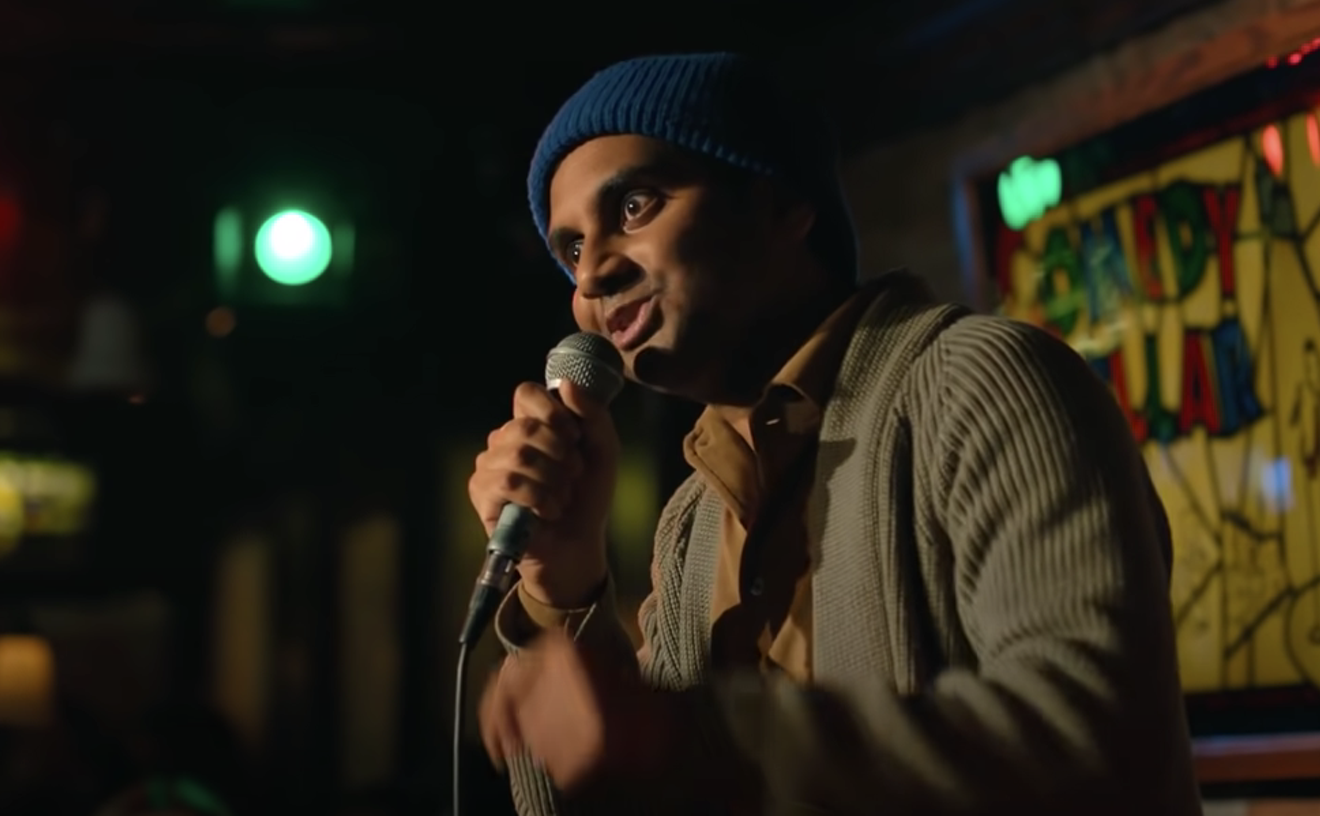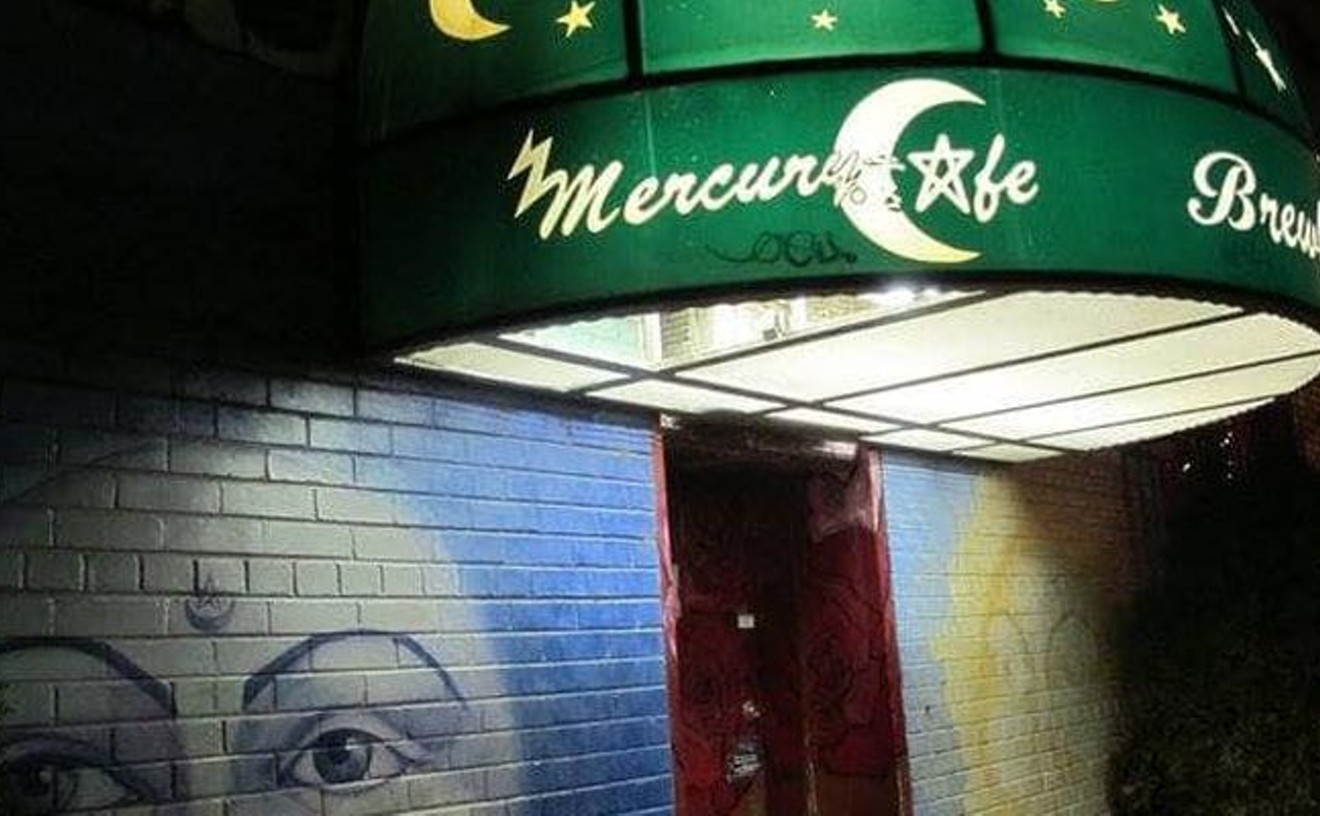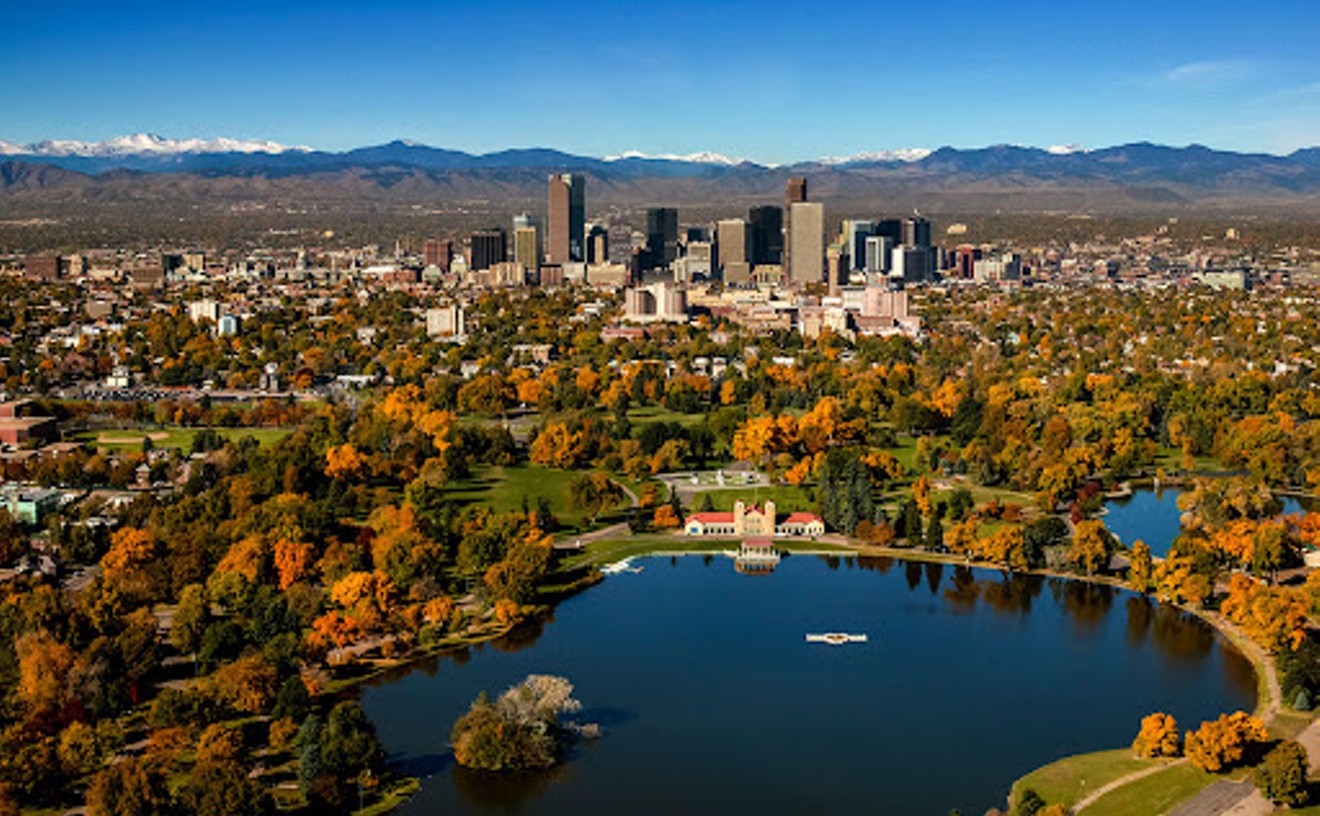Author David Heska Wanbli Weiden, Colorado-born and an enrolled member of the Sicangu Lakota nation, writes as a dedicated student of his own heritage, delving into Native culture and the real history of its downfall to American expansionism. In the interest of preserving roots while revisioning modern Native life, Weiden wrote the crime novel Winter Counts, which arrives in bookstores on August 25, and also authored a children’s book, Spotted Tail, winner of the 2020 Spur Award from the Western Writers of America and finalist for the Colorado Book Awards.
What inspires Weiden’s truth-telling stories? Real life, for one thing. He’ll tell you the rest himself as he answers the Colorado Creatives questionnaire.
Westword: What (or who) is your creative muse?
David Heska Wanbli Weiden: I’m really fortunate to have two. The first is my mother, who made her journey to the spirit world almost twenty years ago. She was raised on the Rosebud Indian Reservation in South Dakota in pretty extreme poverty, but she had a deep love of literature, which she passed on to me. When I write, I always think about her and whether or not she’d like my work. I’m pretty sure she’d love Winter Counts, but I can imagine her saying, “David, did you have to put so many bad words in there?”
The second muse is the visionary Native American writer Louis Owens, who was one of the first modern Native authors to write in the crime-fiction genre. Like me, he was also a professor and wrote literary criticism and creative nonfiction in addition to novels. Because I hold Owens in such high regard, I included a hidden homage to him in the pages of Winter Counts, as well as one other writer, whose identity I’ll keep secret for now.
Which three people, dead or alive, would you like to invite to your next party, and why?
In addition to literature, I’m really obsessed with music and film. I think a great party would include Lou Reed, so that I could ask him about the origin of so many of his songs and the inspiration for them. The legendary director Stanley Kubrick — I’d speak to him about his experience directing adaptations of Lolita and The Shining and the final sequence in 2001: A Space Odyssey. Finally, I’d invite one of the greatest Native American writers ever, James Welch. I wouldn’t ask any questions; I’d just sit and listen.
What’s the best thing about the local creative community in your field — and the worst?
The Lighthouse Writers Workshop in Denver has consistently been a massive force for good in the literary community. They offer top-notch courses for both children and adults, and the annual Lit Fest gathering, and also bring in numerous visiting writers throughout the year. I’m tremendously proud to be associated with the organization, and I urge folks who may not be familiar with Lighthouse to check them out!
As for the worst, it appears that we’re heading into difficult economic times, and I fear that financing for the arts will badly suffer. I’m hoping that federal and state policymakers will realize that the arts are vital, especially in times of great national trauma.
How about globally?
It’s clear there’s a sea change happening right now, politically and in the arts community. Previously marginalized artistic voices are being heard, and it’s great to see. In nearly every field, we’re seeing an explosion of new and exciting work that’s challenging the status quo and pointing the way to the future.
What’s your dream project?
Winter Counts! This has been my dream for a long time — to write a literary thriller that was not only a page-turner, but one that also explored legal and societal issues affecting American Indians. I’m hoping that readers enjoy the story and the characters, and also come away with a sense of the challenges that Native Americans face every day. The inspiration for the book came from my teaching about the broken criminal justice system on reservations.
Because of a federal law, the Major Crimes Act, Native nations cannot prosecute violent felony crimes that occur on their own lands. Instead, they must defer prosecution of these crimes to federal authorities. However, the feds decline to prosecute about half of these cases, and so the criminals are released, which is an outrage. So there’s been a rise in private vigilantes, who will pursue justice if the U.S. government won’t. That is, for a fee, they’ll beat up the person who hurt your sister or your child.
The book is the story of one of these enforcers, Virgil Wounded Horse, and his efforts to stop heroin from being brought to the reservation. It’s also the story of Virgil’s attempts to come to terms with his own identity as a Lakota person in the 21st century.
I was really gratified that the critic for Buzzfeed called the book “an absolutely riveting page-turner, compelling not only for the mystery at its core, but also for its piercing criticism of US (mis)treatment of Native populations.”
I’m just tremendously fortunate that Ecco/HarperCollins had faith in my work and decided to publish the novel and the sequel. I really wasn’t sure if a literary crime novel set on an Indian reservation would be of interest to a major publishing house, but they believed in the book. The novel will also be published in France, and it’s been cool to work with a translator and explain American and Lakota concepts to her. For example, I had to explain to her what a Mountain Dew soda is, and why people would drink one.
What advice would you give a young hopeful in your field?
Writing is a tough field, and you have to possess a thick skin. Rejections are never easy, but an emerging writer must learn to deal with them and keep writing. At the same time, I’d counsel a young writer to always be generous and kind, and avoid the bitterness and envy to which some artists succumb. It’s a cliché, but doing good for others will almost always come back to you in a positive way.
Denver (or Colorado), love it or leave it? What keeps you here — or makes you want to leave?
I love it! I’m a Denver native and grew up in the Swansea/Elyria neighborhood before moving to what’s now called Original Aurora and graduating from Aurora Central High School. I moved away from Colorado in 2001 and had been trying to return for over a decade. Finally, in 2013, I received an offer to teach at Metropolitan State University of Denver, and so I resigned my (much higher-paying) position at Hofstra University near New York City.
Everyone thought I was crazy, but I’ve never regretted my decision to come home. Many of the students at MSU Denver are first-generation college students like me, and I absolutely love helping them succeed in life. And the arts community here is wonderful. There are so many generous and kind artists in the Denver area, and I’m so grateful for the support I’ve received.
Who is your favorite Colorado Creative?
My friend Stephen Graham Jones is one of the best writers and people that I know. He teaches at CU Boulder, writes an astonishing number of fantastic novels and short stories, and always has time to help others. His new novel, The Only Good Indians, is getting a great deal of well-deserved attention.
I’d be remiss if I didn’t mention one of my other favorite Colorado Creatives, my mentor Ramona Ausubel, who teaches at CSU and writes surreal and wonderful books and stories. I studied with her in my MFA program at the Institute of American Indian Arts, and I count my blessings that I was assigned to her and received her artistic and professional guidance.
What's on your agenda now and in the coming year?
Right now, I’m preparing to promote the release of Winter Counts. Because of the pandemic, every one of my in-person events was canceled, which is a disaster for a debut author. However, I’ve been lucky to get a fair amount of press for the novel, and I’ve booked a number of virtual events and readings. At the same time, I’m writing the sequel to Winter Counts, tentatively titled Wounded Horse.
I’ve also been continuing to distribute my children’s book, Spotted Tail. That book is for middle-grade readers and is the first children’s biography of the great leader of my nation, Chief Spotted Tail. The book, released in late 2019, was really a labor of love for me, and I don’t receive any royalties for it. Rather, I purchased a large number of copies of the book and sent them, free of charge, to every elementary school on the Lakota reservations.
I’d been planning to go to South Dakota and offer free school visits and readings this year, but the pandemic ended those plans. Still, I’ve heard from a bunch of kids from the reservations who’ve read the book and told me how much they love it and how it inspired them. Those are some of the best moments in my writing career.
Who do you think will (or should) get noticed in the local arts community in the coming year?
There are so many great writers here! I was pleased to publish Manuel Aragon’s first short story in the journal Anomaly, for which I’m the fiction editor. Abigail Chabitnoy just won the Colorado Book Award for poetry, and you’ll be hearing much more from her. Khadijah Queen is one of my favorite people and has a book of poetry forthcoming from Tin House Press. Tiffany Quay Tyson writes some of the sharpest fiction out there, and Kate Lansing has a new mystery, Killer Chardonnay, that was just released. My colleague at MSU Denver, Cynthia Kuhn, has been publishing wonderful academic mysteries for years. Finally, check out Jon Bassoff and Benjamin Whitmer’s books — you won’t regret it! I’ll end with the Native visual artist Gregg Deal, who creates some of the best and most challenging art around.
Winter Counts (Ecco/HarperCollins, $27.99) hits bookstore shelves on August 25. Join David Heska Wanbli Weiden on Saturday, August 29, at 6 p.m. for the Winter Counts book launch at/via Lighthouse Writers Workshop. Details forthcoming.
Keep up with David Heska Wanbli Weiden and additional reading events online.
[
{
"name": "Air - MediumRectangle - Inline Content - Mobile Display Size",
"component": "12017618",
"insertPoint": "2",
"requiredCountToDisplay": "2"
},{
"name": "Editor Picks",
"component": "17242653",
"insertPoint": "4",
"requiredCountToDisplay": "1"
},{
"name": "Inline Links",
"component": "18838239",
"insertPoint": "8th",
"startingPoint": 8,
"requiredCountToDisplay": "7",
"maxInsertions": 25
},{
"name": "Air - MediumRectangle - Combo - Inline Content",
"component": "17261320",
"insertPoint": "8th",
"startingPoint": 8,
"requiredCountToDisplay": "7",
"maxInsertions": 25
},{
"name": "Inline Links",
"component": "18838239",
"insertPoint": "8th",
"startingPoint": 12,
"requiredCountToDisplay": "11",
"maxInsertions": 25
},{
"name": "Air - Leaderboard Tower - Combo - Inline Content",
"component": "17261321",
"insertPoint": "8th",
"startingPoint": 12,
"requiredCountToDisplay": "11",
"maxInsertions": 25
}
]

